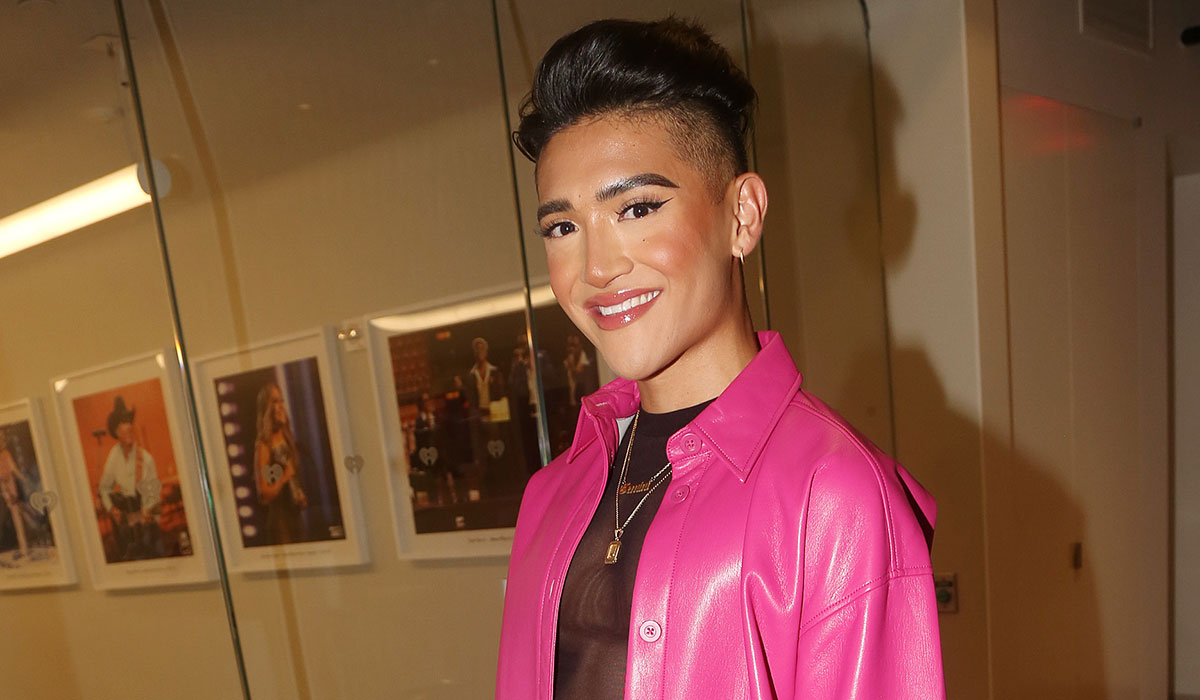Broadway's Gender Debate: Nonbinary Star Rejects Tony Nomination

Broadway's Gender Debate: Nonbinary Star Rejects Tony Nomination. Discover more detailed and exciting information on our website. Click the link below to start your adventure: Visit Best Website. Don't miss out!
Table of Contents
Broadway's Gender Debate Ignites: Nonbinary Star Rejects Tony Nomination, Sparking Crucial Conversation
Broadway is ablaze with controversy following a groundbreaking decision by nonbinary actor, Jamie Clayton, to reject their Tony Award nomination for Best Performance by a Leading Actor in a Musical. This unprecedented move has ignited a fierce debate about gender identity, representation, and the very structure of theatrical awards. Clayton's powerful statement challenges the traditional binary categories of the Tony Awards and throws a spotlight on the ongoing struggle for inclusivity within the performing arts.
The Nomination and the Rejection: A Defining Moment
Jamie Clayton, celebrated for their captivating performance in A New Dawn, was nominated for a Tony Award, a significant achievement in their already impressive career. However, instead of celebrating, Clayton released a statement expressing their discomfort with the nomination itself. The statement, shared across social media and major news outlets, argued that the existing gendered categories fail to accurately represent the diverse spectrum of gender identities within the acting community.
Clayton stated, "While deeply honored by the recognition, accepting this nomination within the confines of a gender binary feels fundamentally at odds with my identity and the message I strive to convey." This powerful rejection has quickly become a rallying cry for nonbinary and gender non-conforming performers who feel marginalized by the current award structure.
A Deeper Dive into the Issues: Beyond the Headlines
Clayton's rejection is more than a personal statement; it's a call for systemic change within Broadway and the broader entertainment industry. The incident highlights several crucial issues:
- The Limitations of the Binary: The traditional male/female dichotomy in award categories fails to accommodate the growing number of nonbinary and gender non-conforming artists. This forces many talented individuals to choose a category that doesn't accurately reflect their identity, potentially hindering recognition and representation.
- Visibility and Representation: The lack of inclusive categories perpetuates a climate where nonbinary performers are rendered invisible or forced into categories that may not reflect their lived experience and artistic contribution. This limits opportunities and hinders progress toward genuine representation.
- The Need for Inclusivity: Clayton's action demands a critical reassessment of how the performing arts celebrate and acknowledge talent. The current system, while seemingly traditional, is demonstrably inadequate in its handling of gender diversity.
What's Next for the Tony Awards and Broadway?
The impact of Clayton's bold decision is likely to be far-reaching. The Tony Awards Administration has yet to respond officially, but the pressure is on for them to address the concerns raised. Many are calling for a complete overhaul of the nomination categories, advocating for gender-neutral options to better reflect the diversity of the performing arts. This debate transcends the Tony Awards, impacting other award ceremonies and raising crucial questions about representation across the entertainment industry.
This pivotal moment calls for the Broadway community and wider audiences to engage in a thoughtful and constructive conversation. We must move beyond simple acceptance or rejection of Clayton’s actions and actively participate in the creation of a more inclusive and representative future for all performers. What are your thoughts on this developing story? Share your comments below!

Thank you for visiting our website wich cover about Broadway's Gender Debate: Nonbinary Star Rejects Tony Nomination. We hope the information provided has been useful to you. Feel free to contact us if you have any questions or need further assistance. See you next time and dont miss to bookmark.
Featured Posts
-
 Proses Pemberkasan Cpns Persiapan Dokumen And Alur Terbaru
Jan 24, 2025
Proses Pemberkasan Cpns Persiapan Dokumen And Alur Terbaru
Jan 24, 2025 -
 Deux Morts Dont Un Enfant De 2 Ans Dans Une Attaque En Allemagne Le Bilan S Alourdit
Jan 24, 2025
Deux Morts Dont Un Enfant De 2 Ans Dans Une Attaque En Allemagne Le Bilan S Alourdit
Jan 24, 2025 -
 Retribution Vow Freed Capitol Riot Ringleaders Reorganize
Jan 24, 2025
Retribution Vow Freed Capitol Riot Ringleaders Reorganize
Jan 24, 2025 -
 Serious Assault In Plymouth Police Seek Witnesses Suspect At Large
Jan 24, 2025
Serious Assault In Plymouth Police Seek Witnesses Suspect At Large
Jan 24, 2025 -
 Milan Girona Pertempuran Sengit Di Liga Europa Siapa Yang Lolos
Jan 24, 2025
Milan Girona Pertempuran Sengit Di Liga Europa Siapa Yang Lolos
Jan 24, 2025
